Name:
Barbara Cameron
Dates:
1954–2002
Primary Resource:
Barbara Cameron Papers | SF Public Library
2020 Poster Location:
Market/Drumm
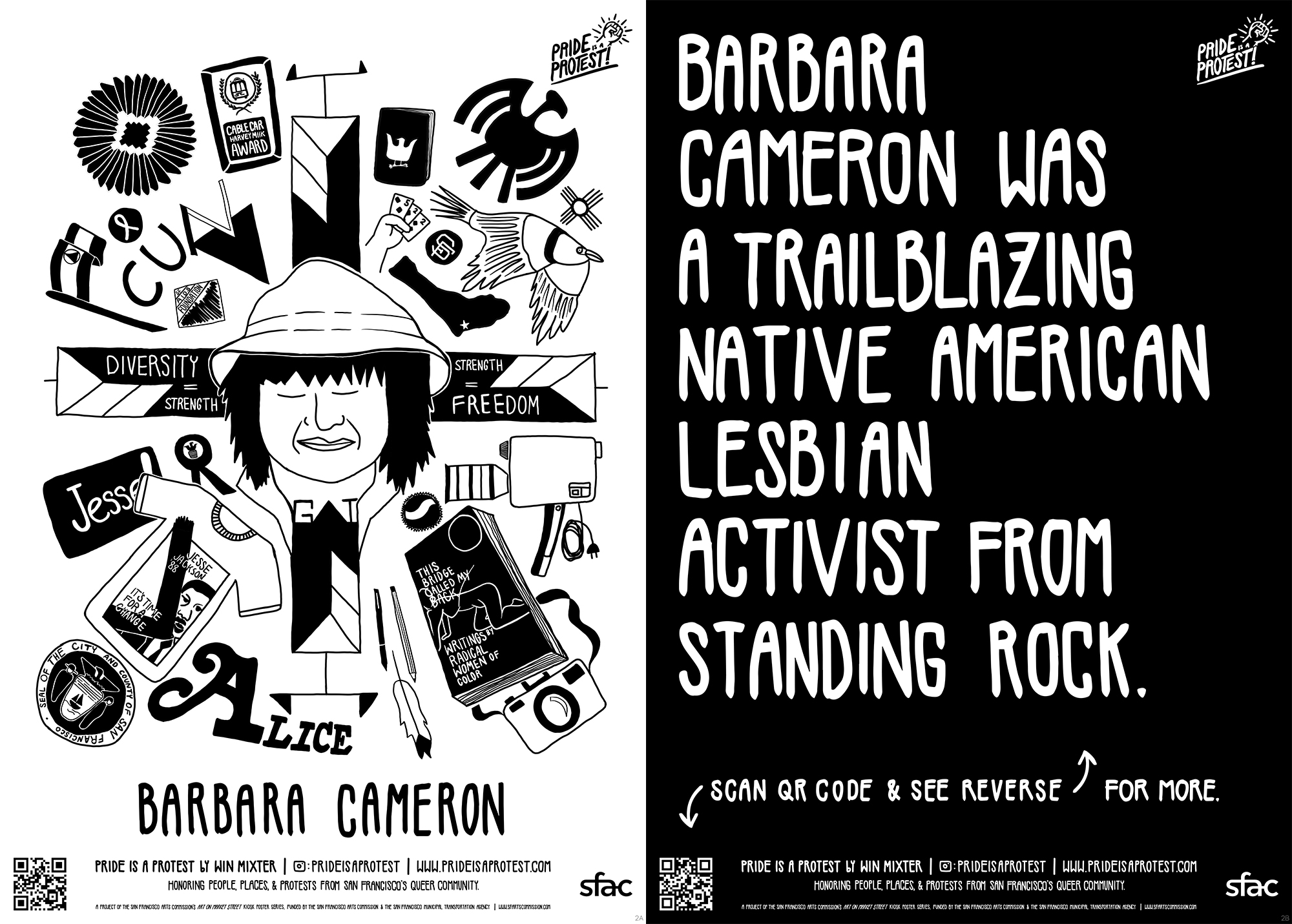
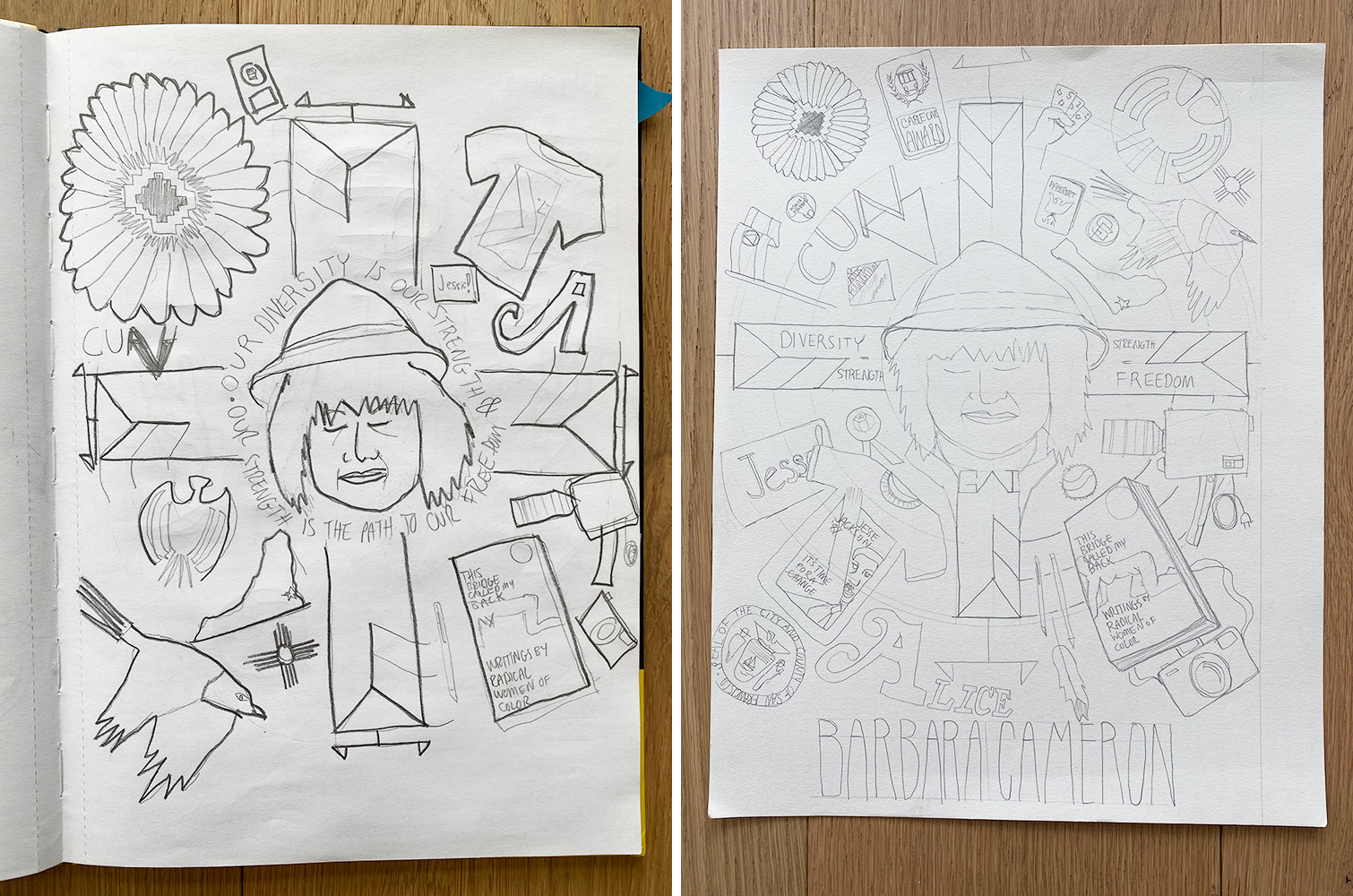
Barbara May Cameron was born on May 22, 1954, on the Standing Rock Native American Reservation in Fort Yates, North Dakota. She is survived by her longtime partner Linda Boyd and her son Rhys.
She won a writing contest sponsored by Pepsi when she was in 9th grade that inspired a lifetime of art and activism; the theme was “You’ve Got a lot to Live.” The prize included a trip to Washington D.C. and a cash award of $1,000.
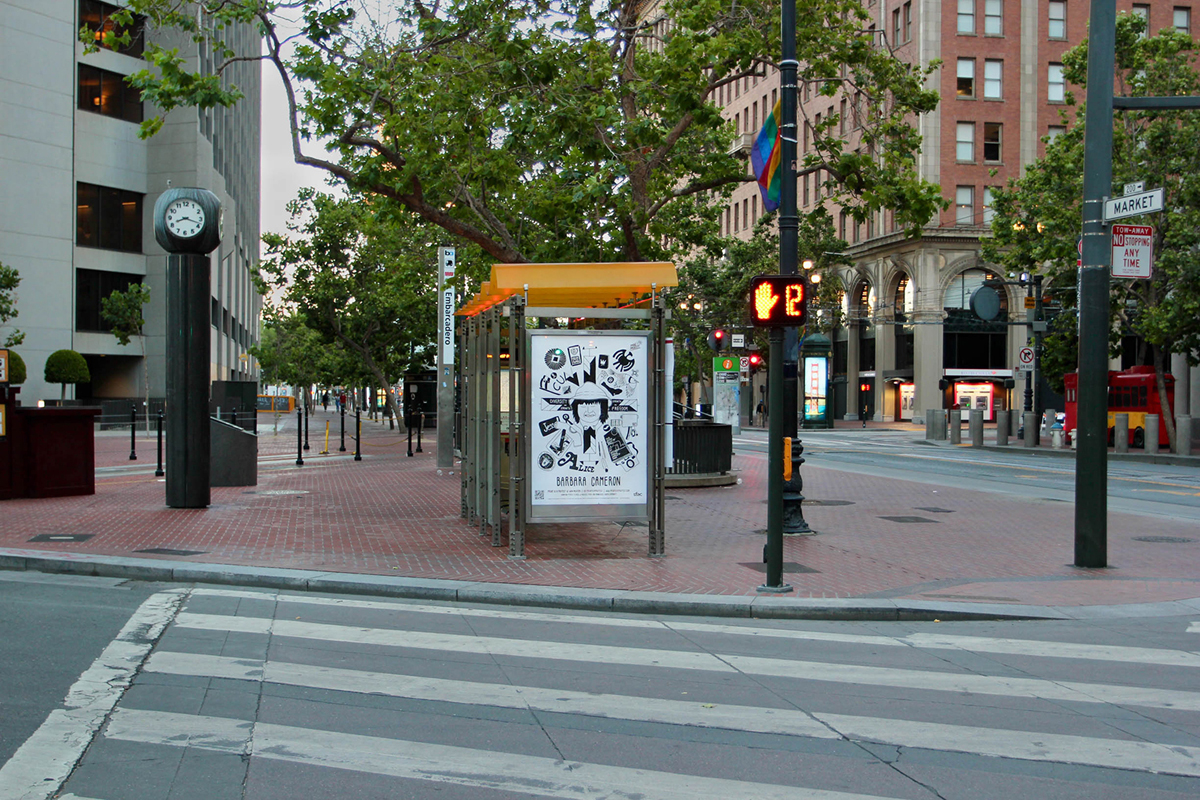
She moved to Santa Fe after graduating in her junior year to attend The Institute of American Indian Arts in Santa Fe, majoring in photography and film. She came out as a lesbian while a student there.
She moved to San Francisco in 1973 to attend the SF Art Institute, though she dropped out before finishing her degree. With Randy Burns, she cofounded Gay American Indians (GAI) in 1975, “...in order to share experiences, provide support for one another, and to help make visible third world leadership in the lesbian/ gay community.” It is the world’s first Native American LGBTQIA+ group; they were visible marchers at early Gay Freedom Day celebrations.
In 1989 she served as President & Co-Chair of the Alice B. Toklas LGBT Democratic Club, the first registered LGBT Democratic Club in the nation. She believed the club was able to make a positive impact on local city politics.
She was an early Executive Director of the community watchdog organization Community United Against Violence (CUAV), established in response to a wave of early 90s anti-LGBTQ+ hate crimes in the city of San Francisco. It was not her most successful venture, though; she left the group after a public spat with the Sisters of Perpetual Indulgence over a bid for sponsorship of the annual Castro Halloween Celebration and a public call for her resignation.
She served as a delegate for the Rainbow Coalition of Jesse Jackson’s presidential candidacy at the 1988 Democratic National Convention. See below for an incredible photo of the two of them embracing before one of his campaign speeches, taken by legendary local photographer Rink.
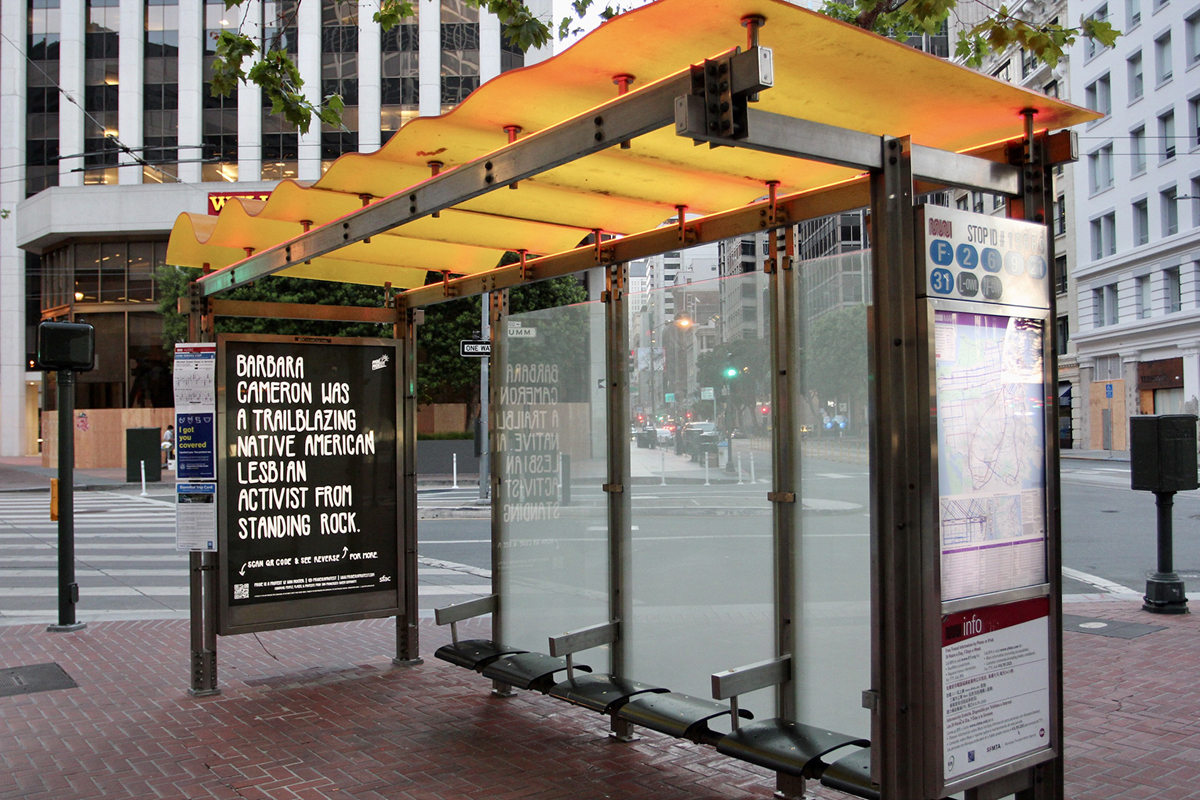
She was an intersectional activist in the truest sense; she advocated for Native Americans and for lesbians, but also for the broader LGBTQIA+ community, for AIDS causes, and for other queers of color. She even traveled to Nicaragua with Somos Hermanas to protest post-revolutionary Sandinista policies that suppressed women’s rights.
She was a member of the planning committee at the 1980 Gay Freedom Day. Deeply unhappy with the representation of speakers on the main stage at Civic Center, she staged a heroic and emotional protest by storming the mainstage and delivering one of the most evocative speeches in SF Pride history. The sentiment of her speech, which calls for greater solidarity within the LGBTQIA+ community, rings true to this day.
You can listen along with this audio recording of her speech, which was originally aired by The Gay Life Radio Show.
Cameron’s speech is from 28:20 to 33:40
“We should celebrate the richness and diversity of our gay culture which should be blatantly displayed up here by having speakers who represent those precious diversities. We should celebrate the fact that gayness crosses all racial borders, and that Third World gays while working for their peoples’ liberation work for gay freedom even though we experience racist and sometime hostile attitudes from the white gay community. We should celebrate our gay artists, the musicians, poets, writers, photographers, painters, and dancers who bring us our aesthetic dreams. Gay people are a many splendored community, but we must be more sensitively evolved and stronger as a community ...Our diversity is our strength and our strength is the path to our freedom.”
Images*

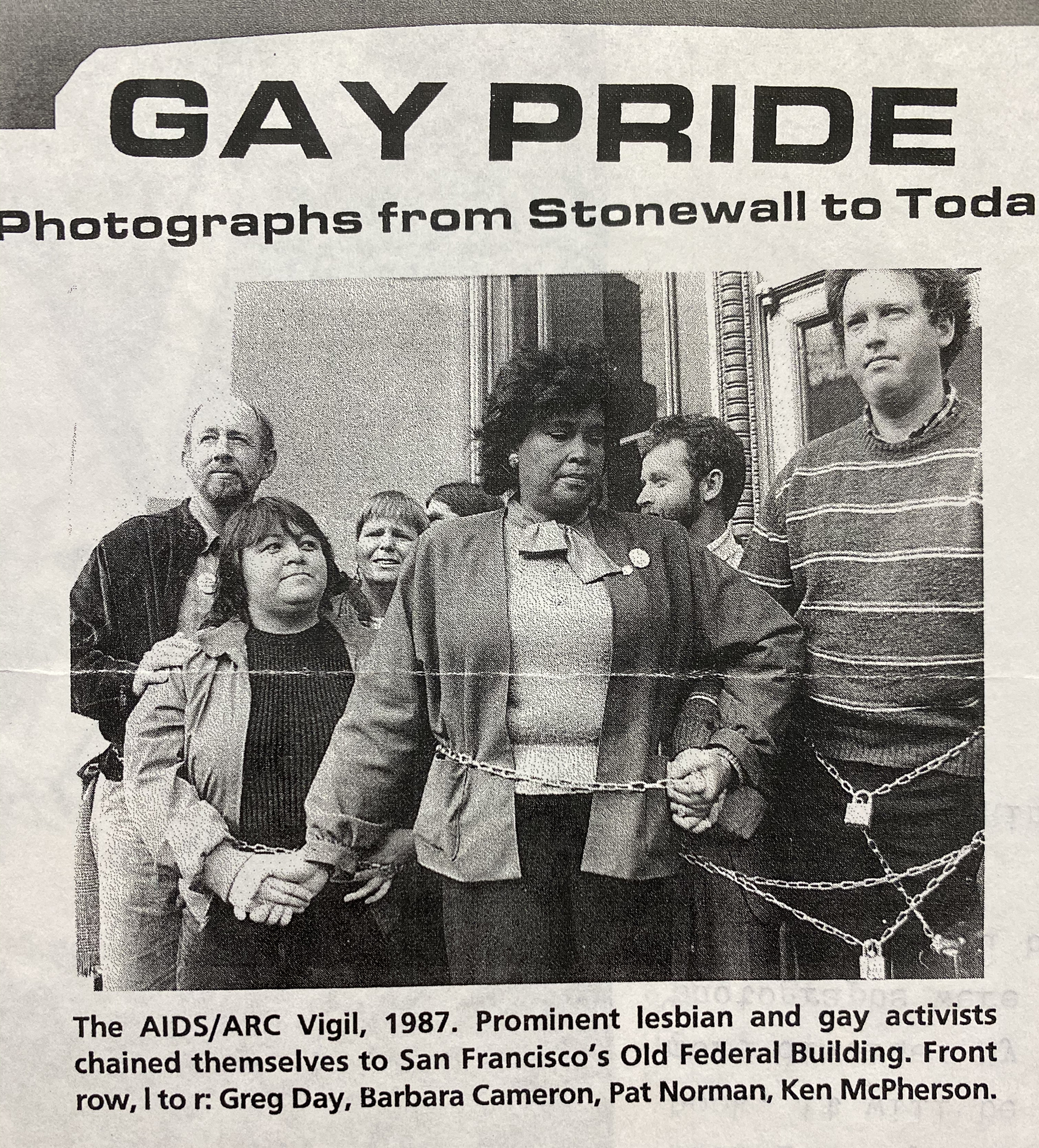
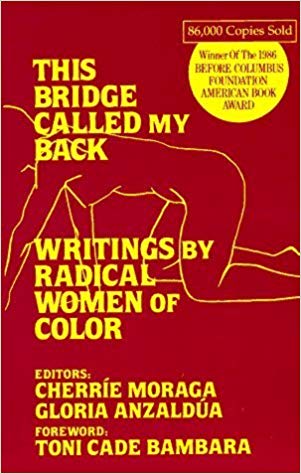
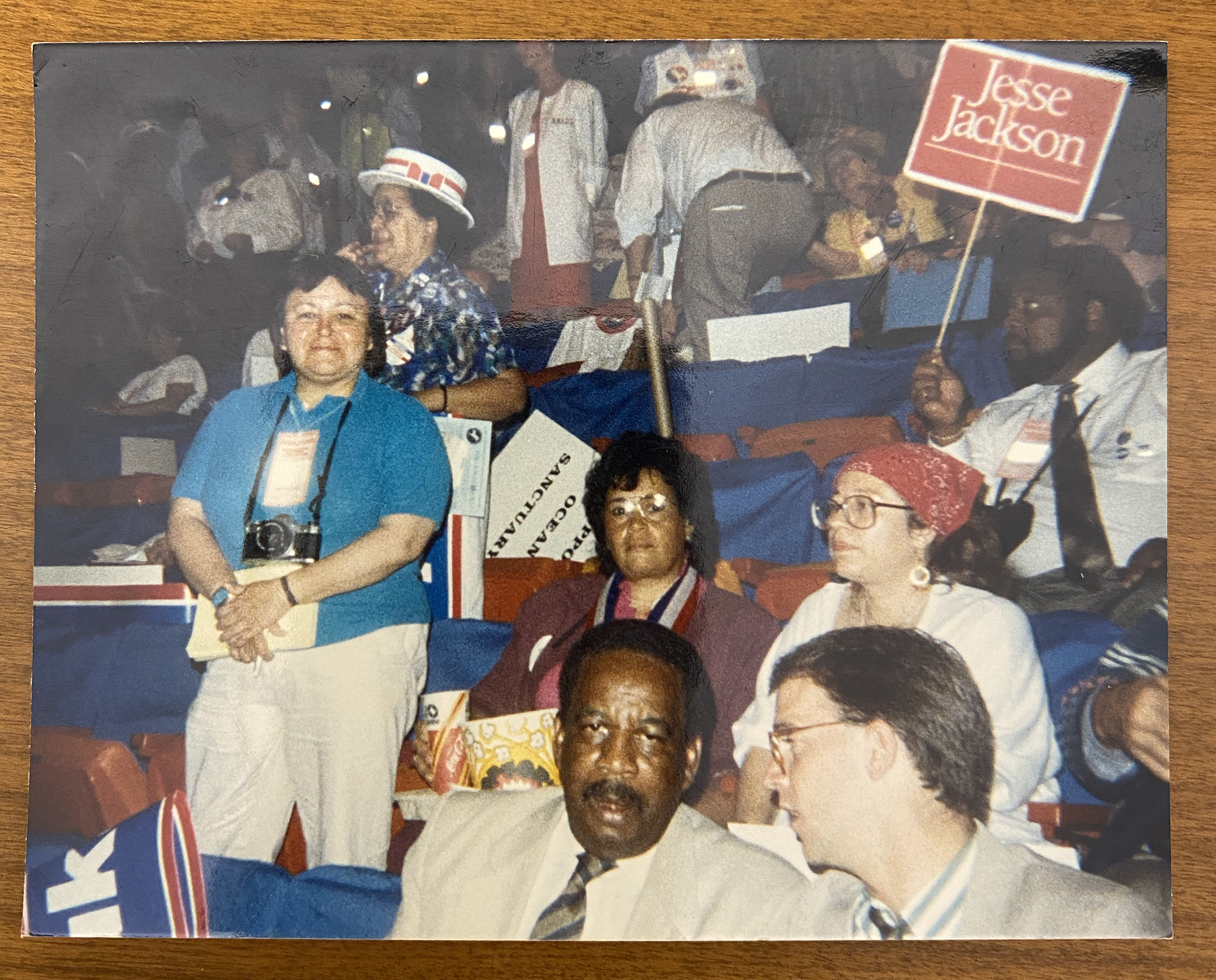
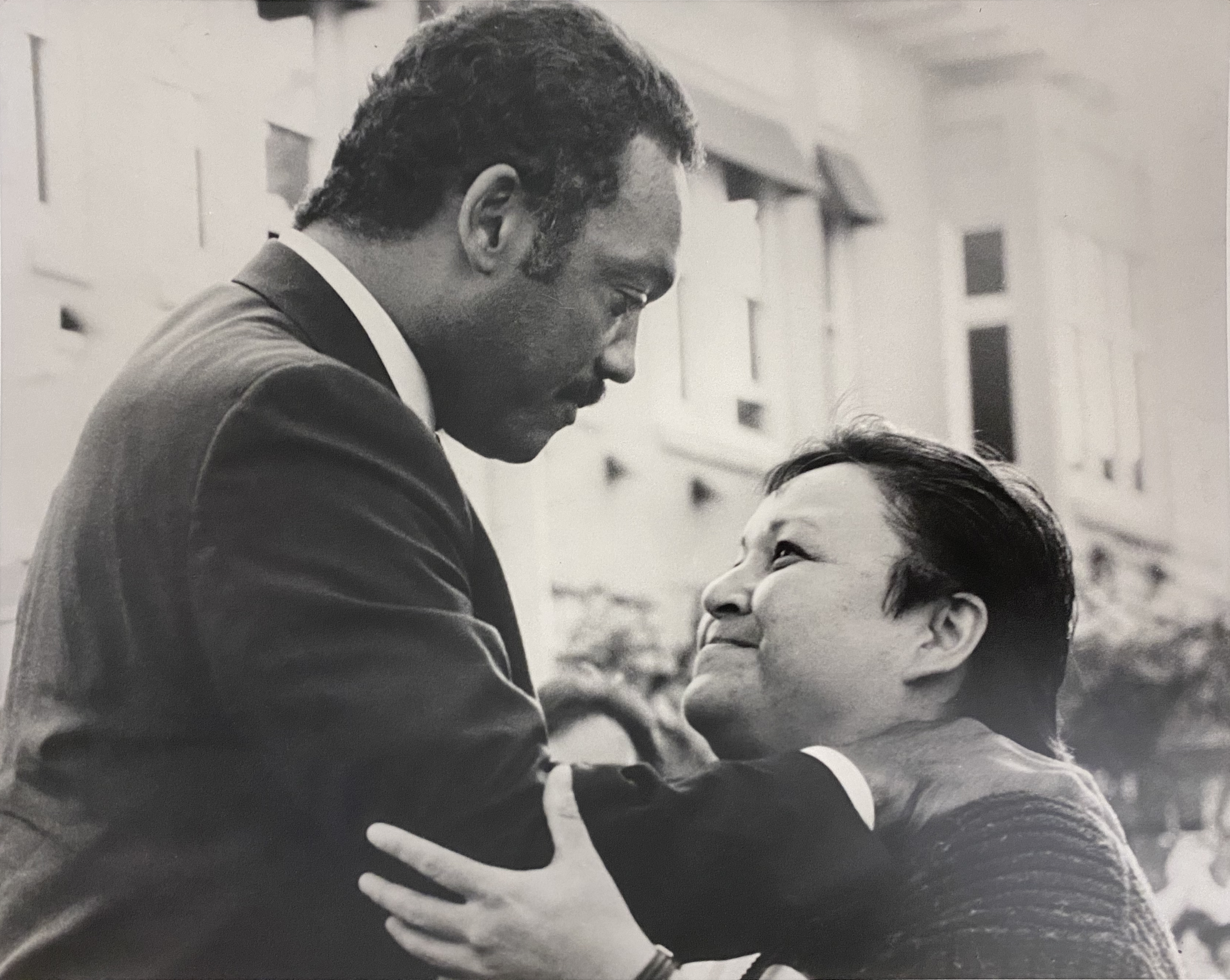

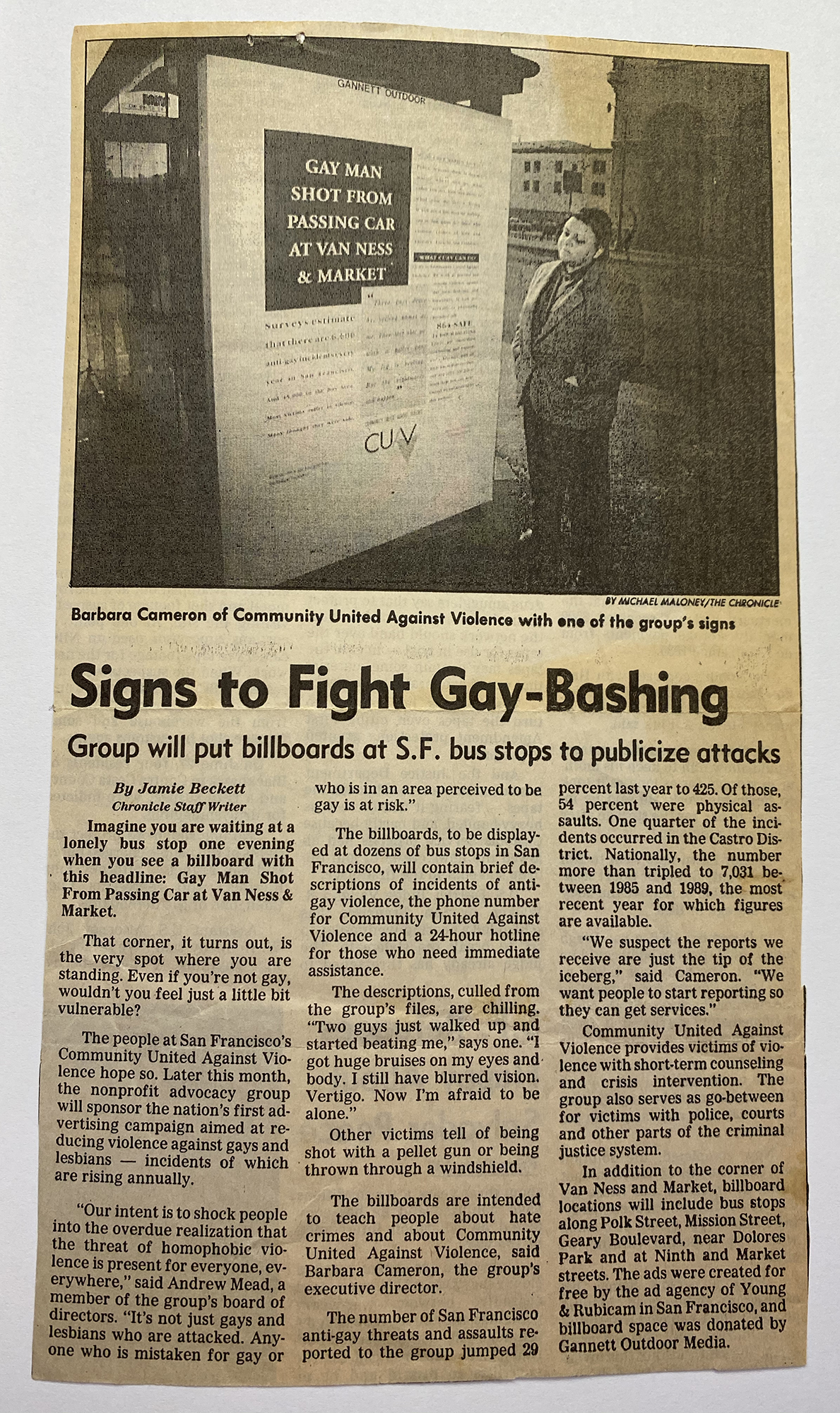
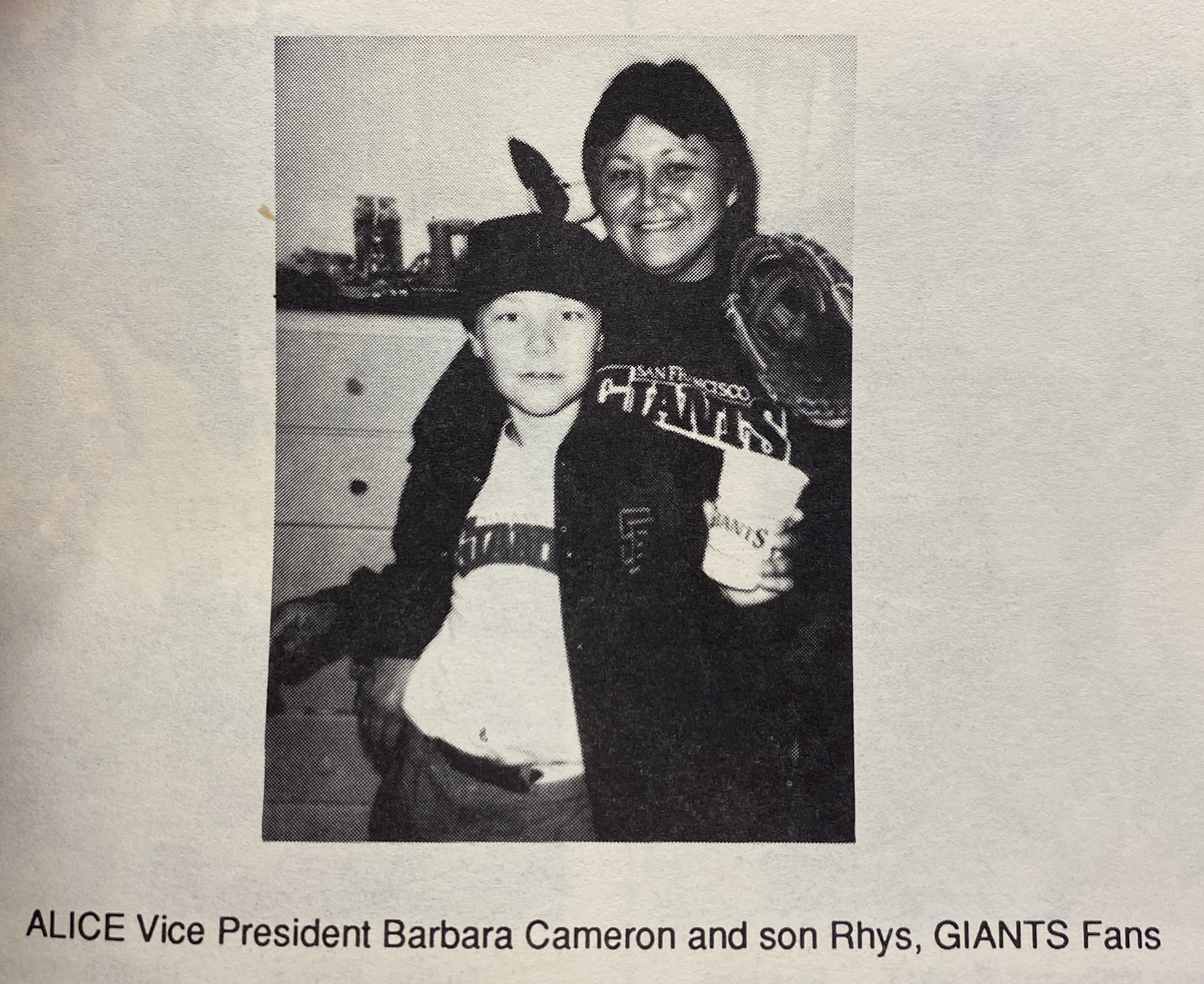
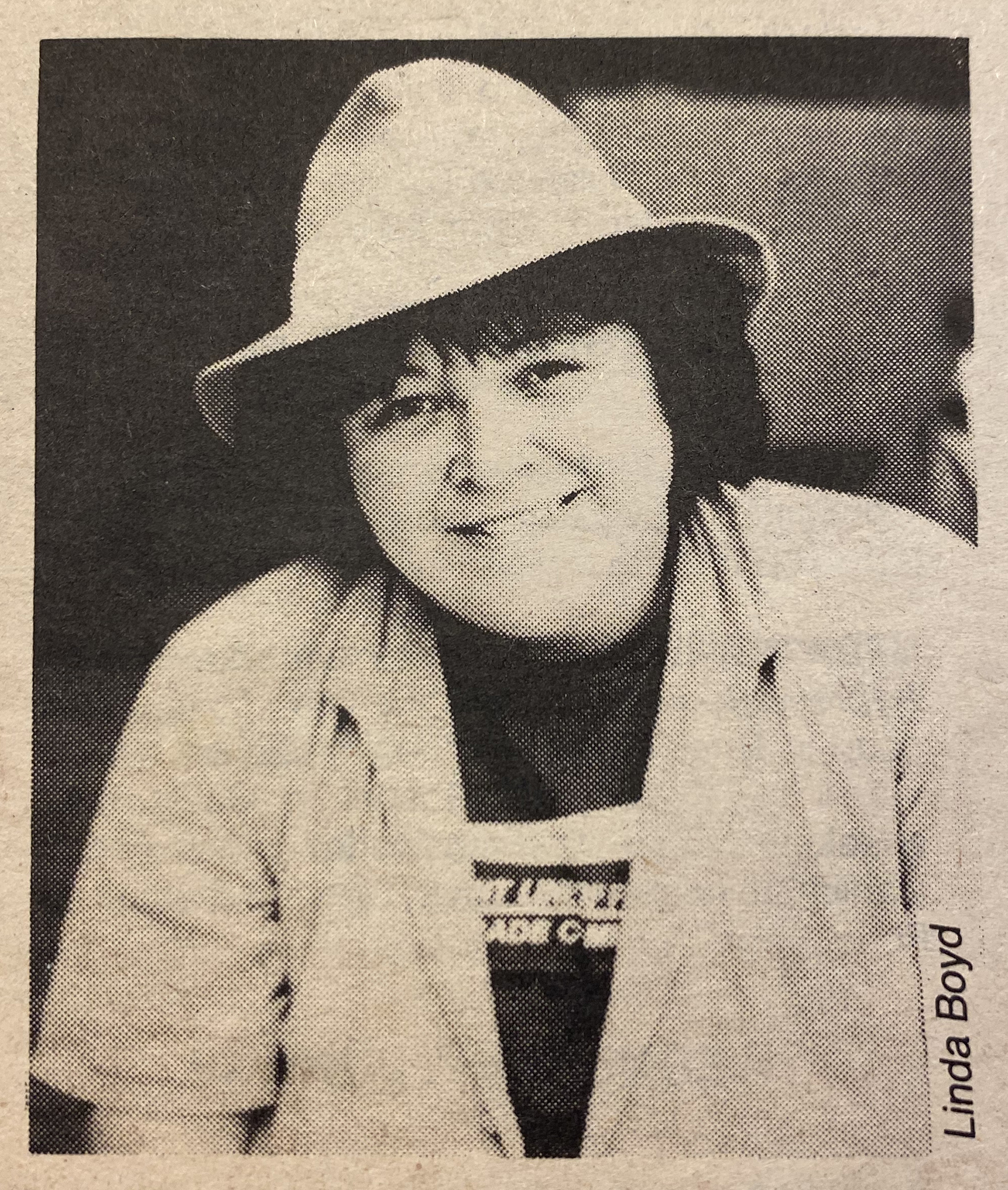
*SFPL images from the SF Public Library History Center. Photo of Barbara and Jesse Jackson by Rink Photo.
Additional Resources
1) “Gee, You Don’t Seem Like an Indian From the Reservation”—Cameron’s seminal essay on the schisms and racism that exist within the queer sub-community.
2) Frybread in Berlin—Barbara muses on finding community and solidarity internationally.
2) Frybread in Berlin—Barbara muses on finding community and solidarity internationally.
3) AIDS/ARC Vigil Speech—Barbara’s speech delivered at the nations longest lasting protest, staged at Civic Center, San Francisco.
funded by the San Francisco Arts Commission and the San Francisco Municipal Transportation Agency.
www.sfartscommission.org.